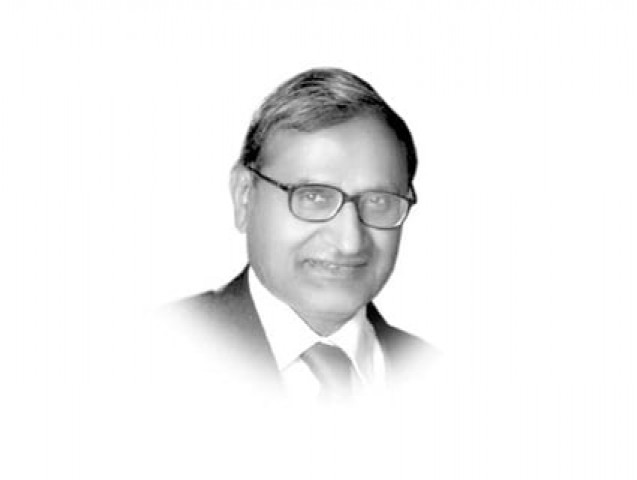Making the status quo work
PTI does promise something for its youthful constituency. For the rest, there will be BISP under another name.

No tsunami is deemed necessary for this revolution to take off. To mobilise revenue, the FBR is to be made autonomous like the State Bank of Pakistan, although the document admits that the State Bank itself has to be made autonomous! Actually, many of the public sector enterprises are autonomous and yet, inefficient. Autonomy given to the present ‘revenuecracy’ will also make the FBR something of a loss-making entity, no matter how much more is spent on information technology. The tax structure remains the same except for the return of a form of wealth tax, which would be adjustable against income tax and a questionable proxy for agricultural income tax. When the going is good by the third year, the sales and corporate tax rates will be reduced. Reducing current expenditure by two percentage points of GDP is not possible without massive lay-offs or salary cuts. Controlling white collar corruption is a laudable objective but it cannot be a serious revenue measure. Declaring educational emergency has been given a new meaning by making higher education its focus. Growth projections are based on a dubious capital-to-output ratio. Job creation is based on unobserved employment elasticity.
The idea of justice is lost somewhere. Not a word has been said about feudalism, unless it is presumed that the strengthening of the capitalist class will ring the death knell for the feudal system. A surrogate agricultural income tax and the resurrection of the unimplemented village councils of General (retd) Pervez Musharraf’s devolution plan cannot even scratch its surface. Inequality results from a skewed ownership of assets. The most direct measure to reduce inequality is to redistribute assets. Towards this end, rural and urban populations are on different planes. In rural areas, land is the main asset. Give people land and they will take care of themselves. A beginning could be made by distributing state land. This would require vacating its occupation by influential landlords, bureaucracy and military. In the second phase, the 1977 land reform could have been implemented in letter and in spirit. But a Shariat Court verdict stands in the way. Is this the reason to avoid the ‘F’ (for feudalism)? In urban areas, there are no physical assets to distribute. The focus ought to be on social assets. These include education, health and skill formation, backed up by credit and knowledge dissemination. The PTI does promise something here for its youthful constituency. For the rest, there will be the Benazir Income Support Programme under another name.
Published in The Express Tribune, August 31st, 2012.















COMMENTS
Comments are moderated and generally will be posted if they are on-topic and not abusive.
For more information, please see our Comments FAQ